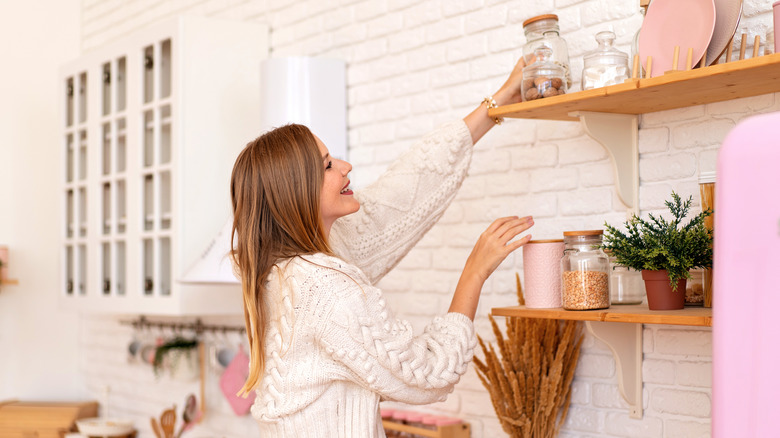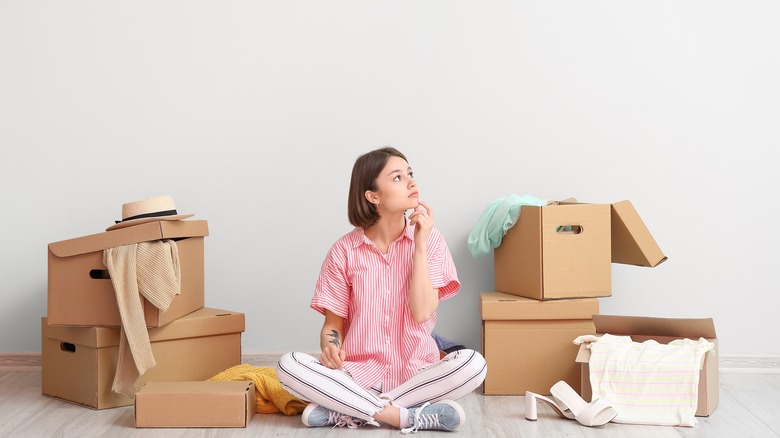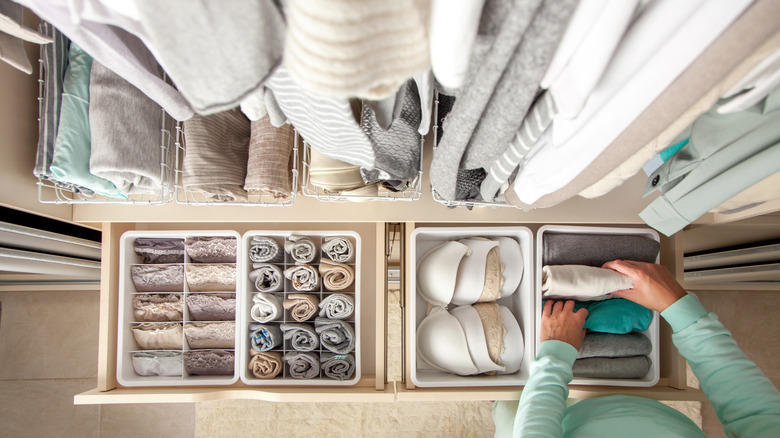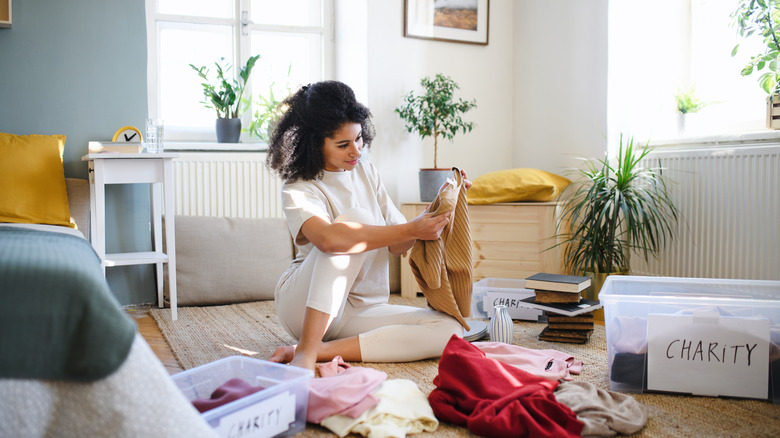The Mistakes Everyone Makes When Starting To Get Super Organized
If you're anything like us, you've probably binge-watched shows like "The Home Edit" on Netflix, which features professional organizers revamping the disorganized spaces of celebrities and ordinary people. TikTok is similarly filled with aesthetically pleasing videos of users organizing their pantries, refrigerators, and bathroom drawers to make their homes look like an IKEA showroom.
It can be easy to feel insecure about your home with all these content types depicting people with seemingly perfect spaces and organized lives. While you don't have to be an expert organizer to live in a structured home, it's crucial to note that an overly-cluttered space can negatively affect your mood, stress levels, and overall satisfaction with life, per Verywell Mind.
According to WebMD, researchers say that clutter can make it harder to focus on even the most minor task. Such instances can lead to stress, insomnia, and an inability to think clearly or engage in proper decision-making. But desiring a clean space can turn this situation around and facilitate an organized life. To help you get started on the right foot, consider most people's common mistakes when organizing their homes.
Don't do too much all at once
Just as you didn't accumulate a house full of clutter overnight, you won't be able to declutter it in one sitting either — nor should you expect to. When it comes to getting (and staying) organized, it is crucial to set realistic goals and expectations for yourself and your family. Creating a checklist or sticking to a daily schedule or routine that allows you to work in a time block each day will be a lot less overwhelming and more fulfilling for you than trying to accomplish everything all at once.
Better Homes & Gardens suggest picking one short, 15-minute organizational task to complete each day. Finishing each chore will motivate you to show up tomorrow and give you a sense of accomplishment. Similarly, creating a checklist and crossing out each task as you complete it will also help you track your progress. It can be rewarding to see your list of organizational to-do's getting smaller every day.
Expect progress, not perfection
The reality is that you live in your house, so your home will look just that — lived in. Expecting perfection out of yourself and others in your household can be damaging to mental health, says WebMD. This statement is particularly true because perfection is impossible to achieve; failing to accept this reality will prevent you from seeing your progress.
Apartment Therapy reiterates the importance of not committing yourself to unrealistic standards, especially if you aren't naturally organized. For an organization system to work, it has to be easily maintained in a way that fits into your lifestyle. In other words, create a more forgiving system that will allow for a little bit of life's inevitable clutter, so you don't feel overwhelmed.
For example, rather than taking on the responsibility of folding every pair of socks you own so they fit into a tiny storage cube, invest in bigger containers that will allow you to roll them into a ball and toss them in. This way, your socks will be organized in one place but in a maintainable and quick manner that will be easy to accomplish, even on busy days. This may be necessary if you have children, as the bulk of your success in keeping them organized will depend on establishing simple and accessible systems for them to maintain.
Don't try to organize without decluttering first
Organizing your living space becomes easier when you get rid of all unwanted clutter first. It's counterintuitive and unproductive to work items into your organizational systems that you no longer need or want — as the more things you have, the more difficult it becomes to maintain them all.
Apartment Therapy reiterates the importance of decluttering beforehand, as doing so will also help you determine what size and type of bins you need to buy for each part of your house. If you get rid of unnecessary and unwanted belongings in advance, you can buy fewer and smaller containers. This will take up less valuable space in your home, making the process more cost-effective.
Decluttering can also be rewarding, especially if you donate these items to those who need them the most. Better Homes & Gardens suggests that contributing to a cause that you find meaningful will make it easier to part with items you no longer need or use. Selling your unwanted belongings is always an option if you want the added incentive to make some extra cash. Try having a garage sale or listing your items on Facebook Marketplace, Poshmark, or Craigslist to free up some valuable space in your home while making money.



